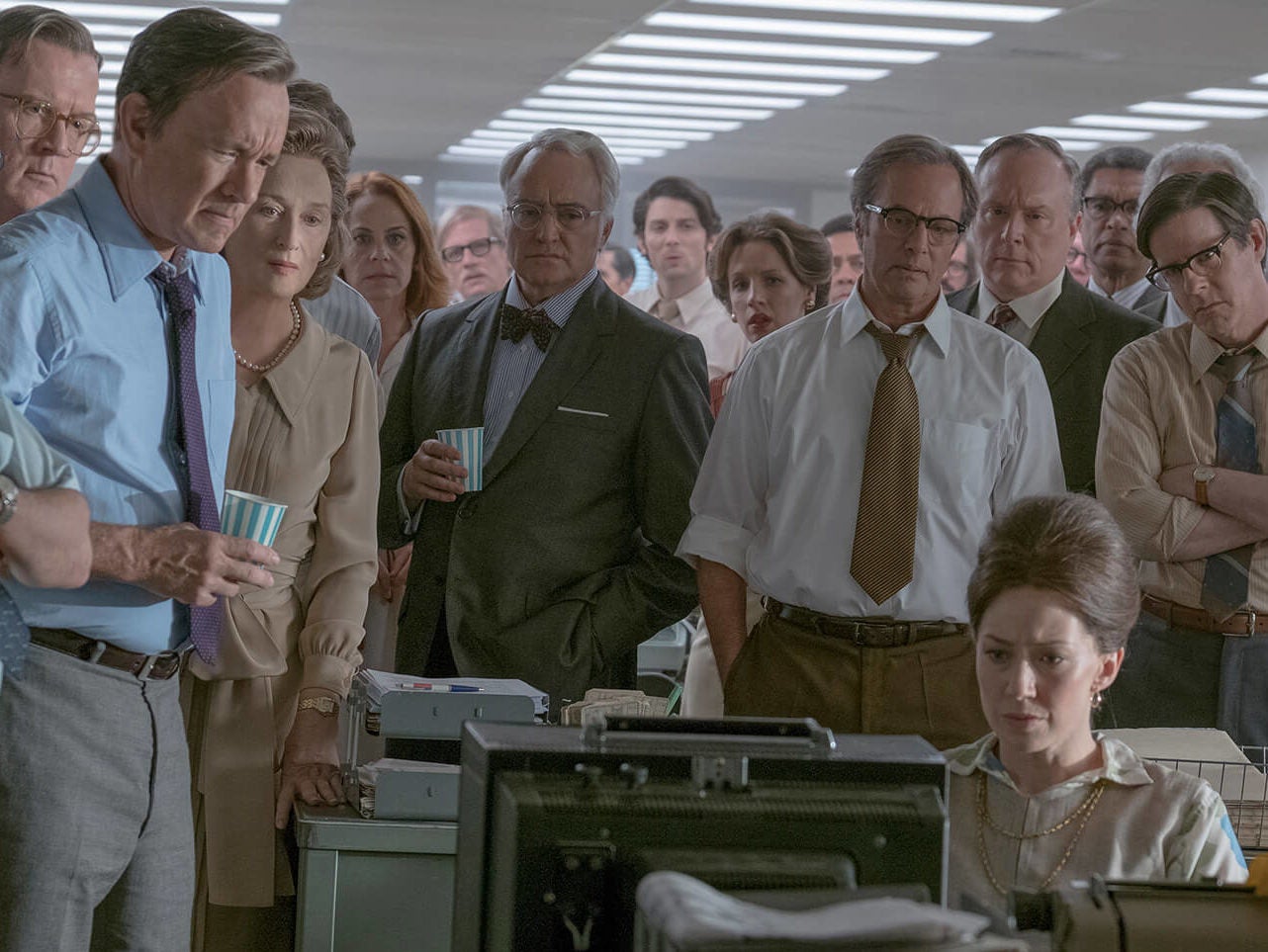
The Post is more of a boardroom drama than a newsroom drama.
The story that the Washington Post chases in the film is one that has already been broken by the New York Times, and the drama revolves around the decision of the publisher, Katherine Graham, to publish secret military documents that revealed government dishonesty about the Vietnam War.
Graham, the first female Fortune 500 chief executive, risked financial ruin – the Washington Post was in the process of becoming a public company when Graham made the decision to publish – and potentially even prison by defying Nixon’s attempts to gag the press.
The film’s script was co-written by Josh Singer, who also wrote The Fifth Estate and won an Oscar for his work on the last big journo movie, 2015’s Spotlight.
But while Spotlight was almost entirely made up of people doing journalism – interviewing, researching, interviewing, traipsing, arguing – The Post is light on journalistic process.
Bob Odenkirk’s character spends less than a day making phone calls before he tracks down the source of the secret documents. “The trail of breadcrumbs wasn’t that hard to follow,” he explains, apologetically, when he arrives at the secret rendezvous.
But while it doesn’t portray a huge amount of journalism, The Post delights in being a movie about a newspaper.
There are some lovely shots of hot metal being cast and type being set, and when the presses in the basement start rolling the desks upstairs begin to shake.
There are galley proofs and sub editors who use really big pencils, and copy is rolled up and whooshed around the building in vacuum tubes. Much of the action takes place against a background of hacks in short sleeves and browline glasses, mashing away at typewriters, cigarettes clenched between their teeth.
There is a typewriter in almost every scene – Tom Hanks collects typewriters, so perhaps some of them are his – and at one point Meryl Streep’s character briefly forgets the main reason she’s asked to speak to her editor and says “oh, I buried the lede.”
This isn’t the only moment where a journalist might raise a wry eyebrow.
A couple of times in the early boardroom scenes, Streep is asked “three million dollars – what is that? How many journalists?” and she replies “twenty-five”. Over five years, that’s $24,000 a year per journalist – which, adjusted for inflation, works out to $144,000 a year as the average salary in the newsroom. Is this what Hollywood thinks reporters get paid?
Pedantry aside, though, this is a very enjoyable film with a great sense of humour. And the story of the defiance of the New York Times and the Washington Post of a repressive presidency’s attempts to silence them could not have been timed better.
The Post arrives in cinemas in the same week that Donald Trump announces his Fake News Awards, which are aimed at discrediting the papers that Richard Nixon failed to gag.
With our own government in the House of Lords also moving to restrict press freedoms, it’s a great moment for Hollywood’s most successful director to stand up for the news.
Picture: Fox
Email pged@pressgazette.co.uk to point out mistakes, provide story tips or send in a letter for publication on our "Letters Page" blog
